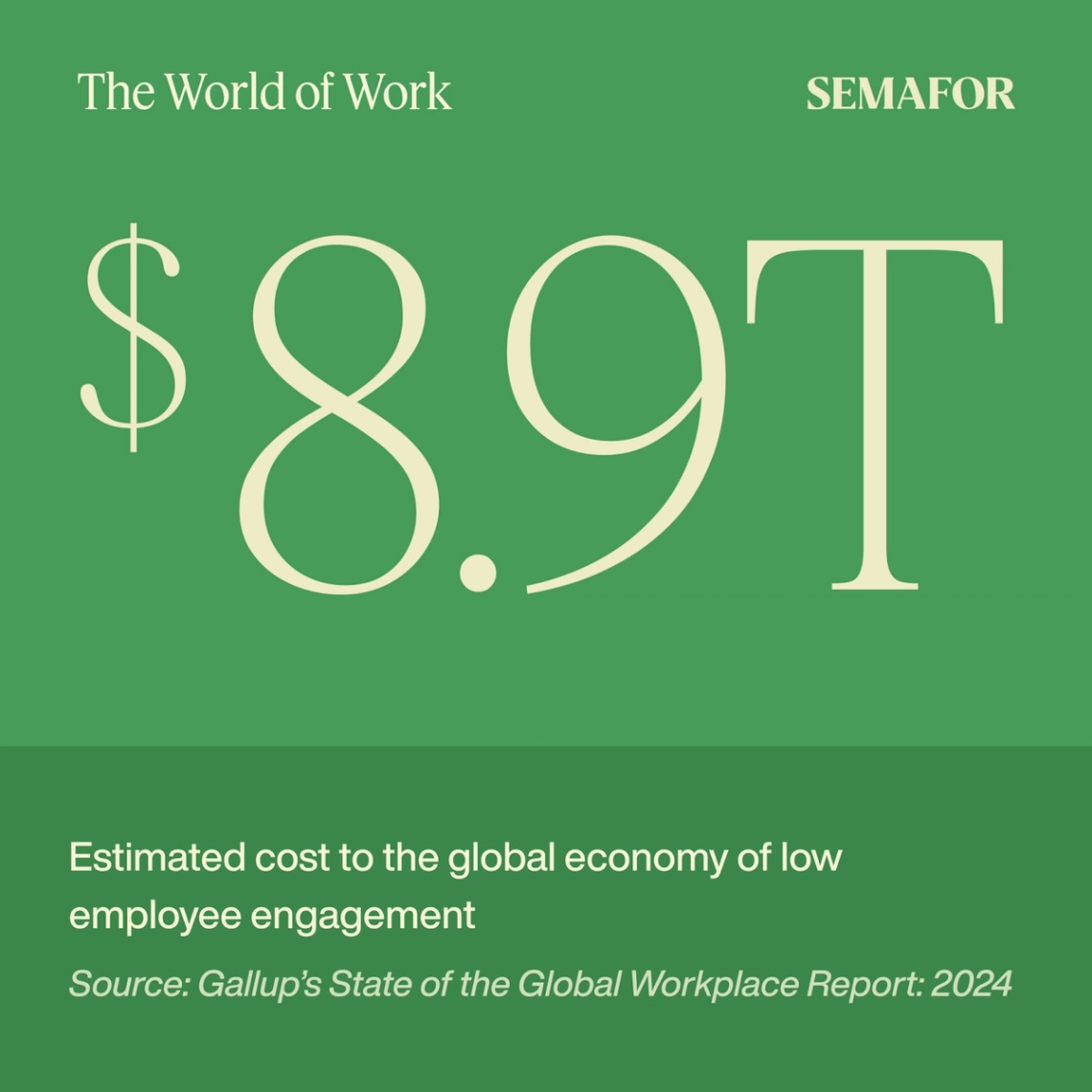 According to Gallup, 62% of the global workforce is either not engaged or actively disengaged at work, costing the global economy an estimated $8.9 trillion per year. How will global leaders respond? On Wednesday, June 12, guided by new survey data from Gallup’s State of the Global Workplace: 2024 Report, Semafor’s editors will provide a pulse check on how workers around the world are feeling. You’ll hear policymakers, business leaders, and Gallup experts discuss topics including rising loneliness, work-life balance, competition in the labor market, the mental health crisis in the office, and why Gen Z is looking at trade schools over traditional degrees. RSVP for in-person or livestream |